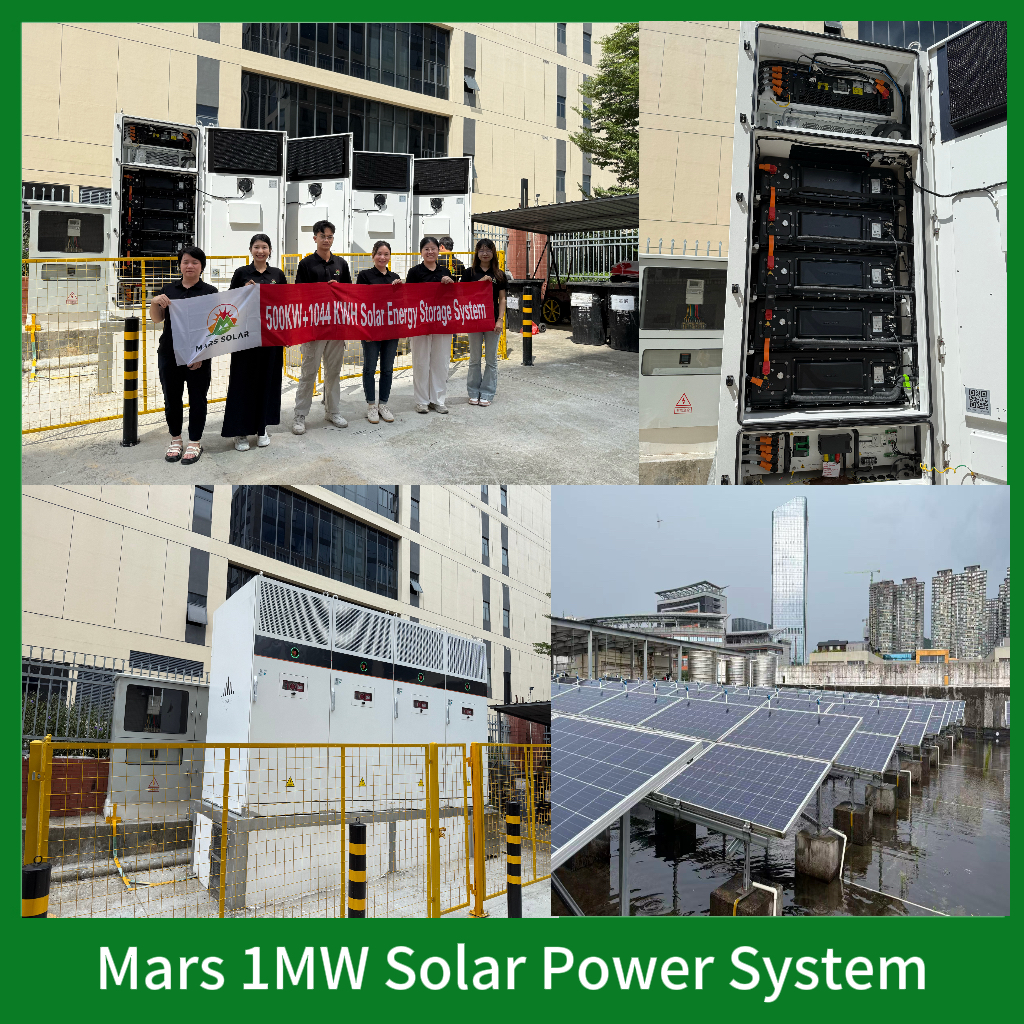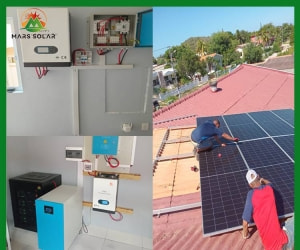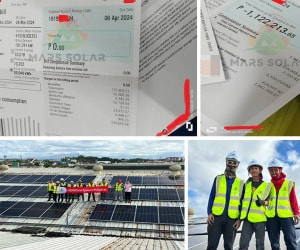A few days ago, industry analysis agency Wood Mackenzie released a report saying that if sub-Saharan Africa wants to achieve 100% electricity access by 2030, it is necessary to explore power supply models other than fossil energy and vigorously develop Pv Solar Panel renewable energy power generation. Achieving access to electricity in sub-Saharan Africa while promoting the global energy transition. Achieving this goal is expected to require more than $350 billion in investment in the region.
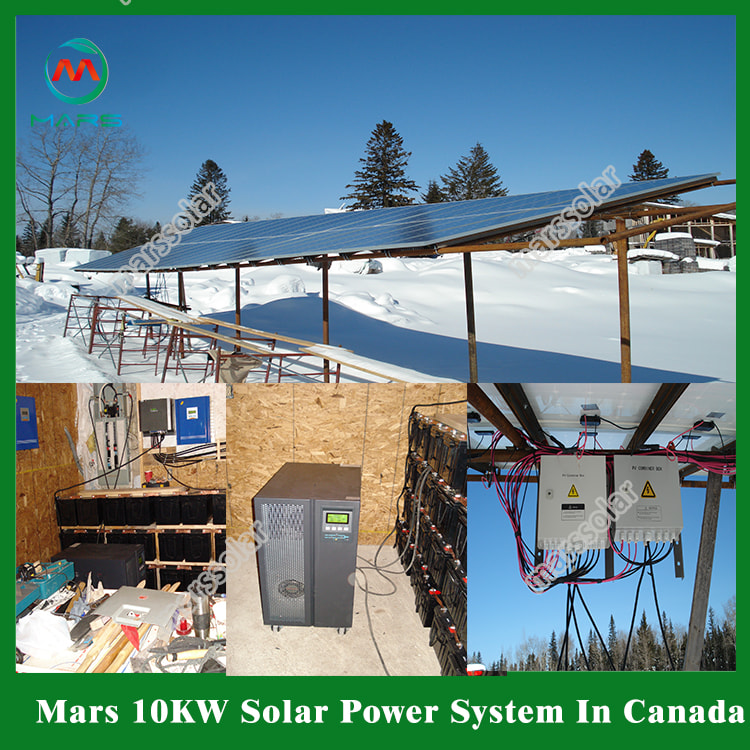
According to the African Development Bank, at present, the electricity access rate in Africa is only about 40%, and more than 640 million Africans live in areas without electricity. In particular, sub-Saharan Africa has the lowest electricity access rate in the world, and the per capita energy consumption is only 180 kWh/year, which is far lower than the per capita energy consumption level of thousands or even tens of thousands of kWh/year in European and American countries.
Wood Mackenzie pointed out that achieving 100% electricity in Africa is one of the major challenges facing the energy industry in the future. It is understood that the power grid in sub-Saharan Africa is weak and lacks sufficient transmission and distribution facilities. At the same time, the electricity supply in the region is mainly based on thermal power.
Sub-Saharan Africa has experienced multiple power outages in recent years. In May 2020, Kenya and Uganda experienced nationwide power outages. Kenya Electricity and Lighting said on Twitter that the outage was caused by a system failure in the company's transmission network. Nigeria’s national power grid is also frequently paralyzed. The Nigerian Power Transmission Company stated that although the country’s electricity connection rate is increasing, even if it is connected to electricity, people cannot get a stable and sustainable power supply because of the fragile power grid.
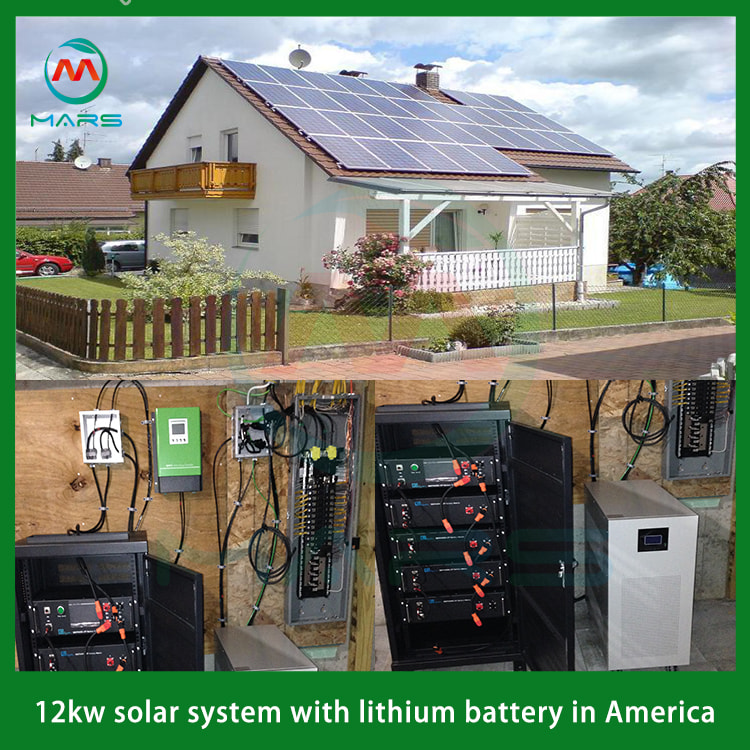
In the opinion of Wood Mackenzie analyst Benjamin Attia, the construction of thermal power plants requires a large investment and a long cycle, and at the same time requires the construction of supporting infrastructure. And in the context of falling renewable energy costs, if sub-Saharan Africa can adopt renewable energy on a large scale, it will promote and promote innovation in the power industry.
The oil price network quoted industry research institute analyst Gaurav Metkar as saying that the economic development of African countries is slow due to the backward infrastructure and inconvenient transportation. However, in recent years, the demand for electricity in African countries is rapidly increasing. Africa's electricity demand will double by 2030. In order to build an accessible, affordable and sustainable energy system for all, more and more African countries have included the development of renewable energy in their plans, and regard it as an important way to achieve the goal of 100% electricity access. It is expected that in the next five years, photovoltaic power generation will become the preferred new energy technology in Africa.
Wood Mackenzie pointed out that Africa is rich in solar energy resources. According to estimates, the potential installed capacity of photovoltaic power generation in the region is 1 billion kWh. But the number of renewable energy projects in Africa is limited due to financing issues. As of the end of 2020, the installed capacity of photovoltaics in Africa is only about 10.58 million kilowatts.
The oil price network believes that the mature renewable energy technology and the declining cost are creating a better environment for the market to invest in related projects. Kenneth Engblom, an executive at Finnish energy company Wärtsilä, said the modeling results showed that African countries need to maximize the use of renewable energy in order to build cost-optimized energy systems.
Against the above background, nearly 40 African countries have implemented or plan to implement renewable energy projects, and financial institutions have participated extensively to provide financial support for relevant projects. According to Algeria's development plan, by 2028, the country's photovoltaic installed capacity will reach 5.5 million kilowatts.
At the end of December 2020, the Nigerian National Photovoltaic Support Program "Solar Home System" was officially implemented. The Nigerian federal government will install 5 million solar home systems and small grids in communities with underserved or off-grid electricity across the country. 20% funding is planned.
The African Development Bank also hopes to promote the popularization of electricity in sub-Saharan Africa. In addition to setting up a fund to support distributed renewable energy, it also plans to invest tens of billions of dollars in the construction of photovoltaic power generation projects.
-
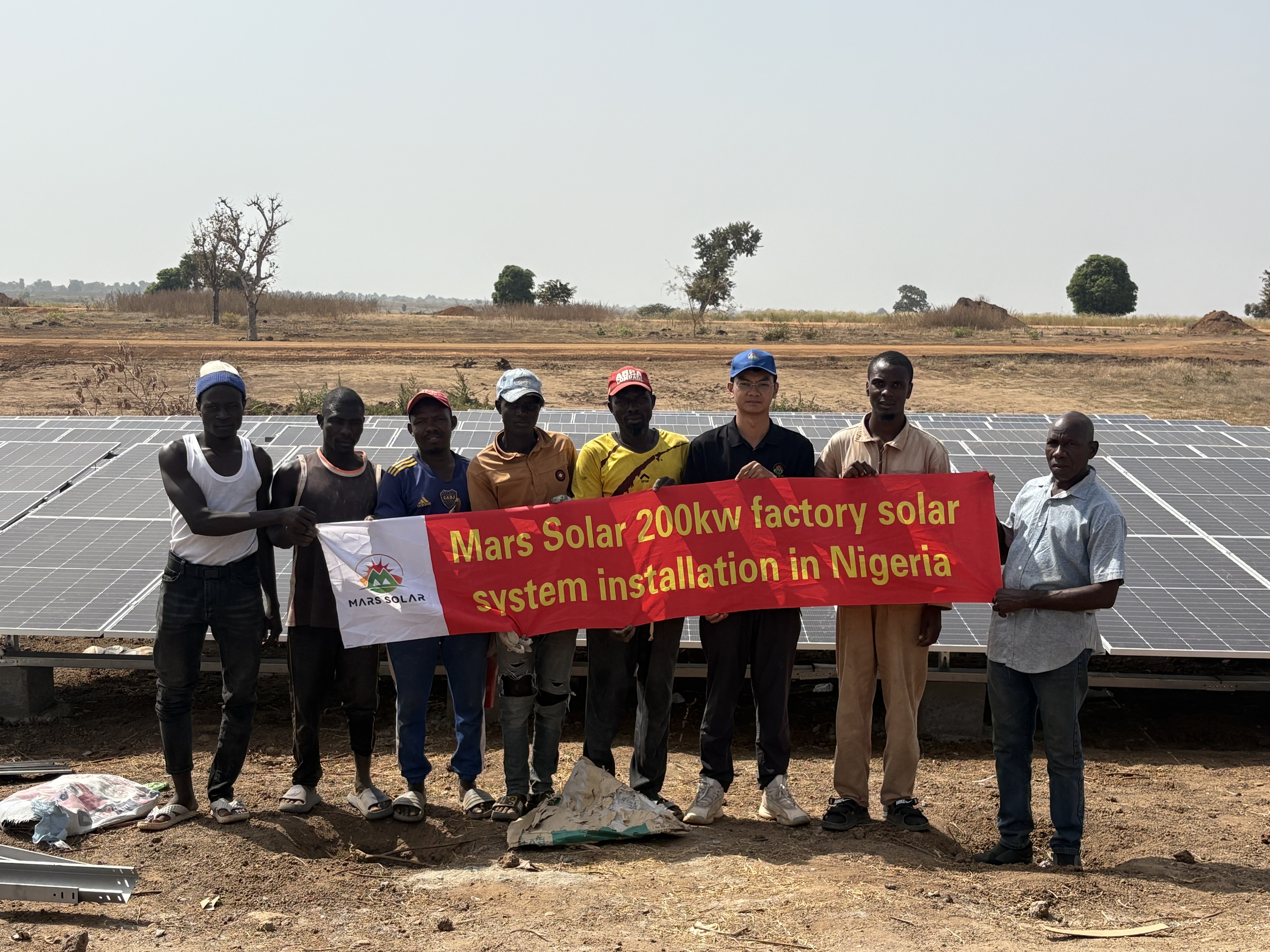 Case Study: 200kW Solar Power System Project for a Rice Mill in a Remote Area ofProject Overview This is a rice mill located in a remote area of Abuja, Nigeria. The local municipal power supply is unstable, and electricity tariffs have increased multiple times this year. Due to the unreliable grid power, the customer can only oper
Case Study: 200kW Solar Power System Project for a Rice Mill in a Remote Area ofProject Overview This is a rice mill located in a remote area of Abuja, Nigeria. The local municipal power supply is unstable, and electricity tariffs have increased multiple times this year. Due to the unreliable grid power, the customer can only operDo you like ?0
Read more -
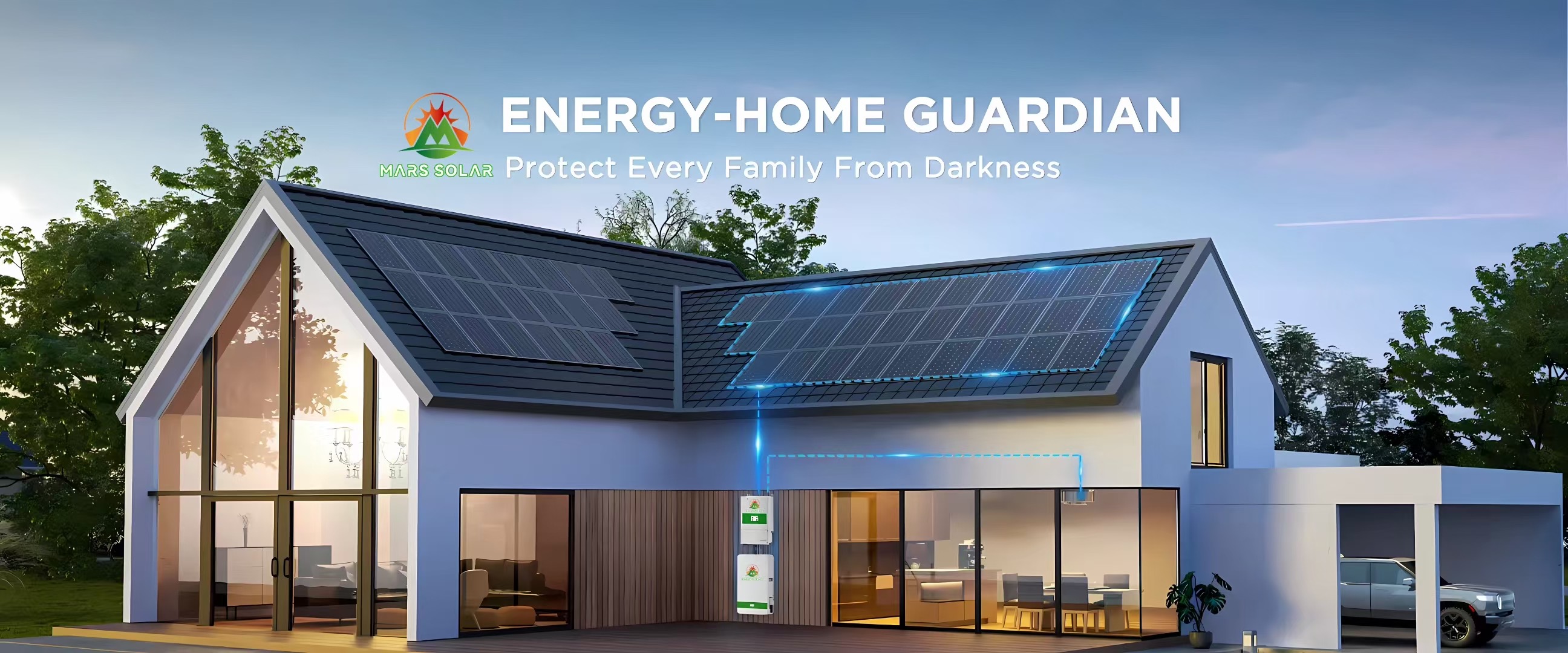 Solar PV System Expansion: Compatibility, Efficiency & Implementation Guide1. Background and Necessity Early-installed PV systems generally fail to meet the growing energy demands of modern households and enterprises. Compared with replacing the entire system, expansion is a more economical option—but the core question
Solar PV System Expansion: Compatibility, Efficiency & Implementation Guide1. Background and Necessity Early-installed PV systems generally fail to meet the growing energy demands of modern households and enterprises. Compared with replacing the entire system, expansion is a more economical option—but the core questionDo you like ?0
Read more -
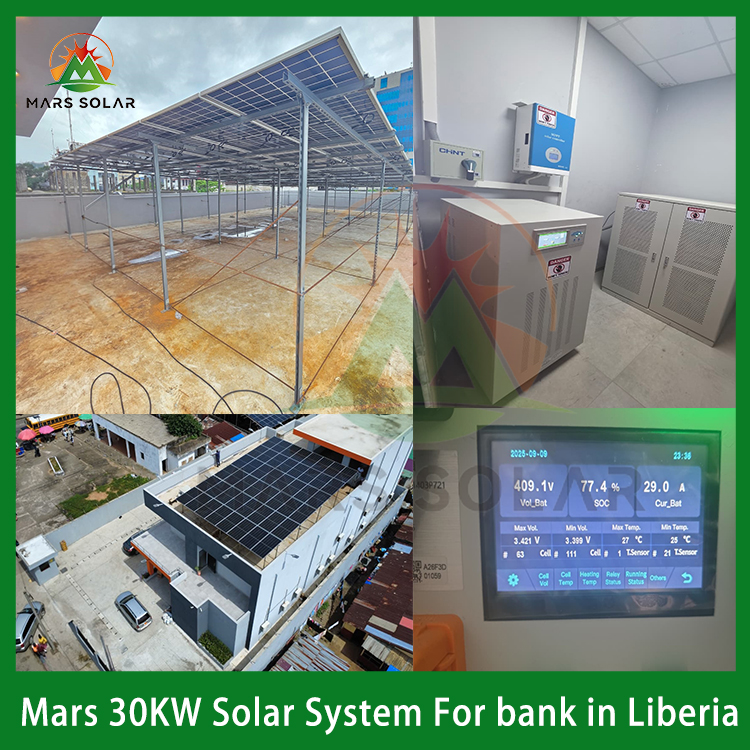 Customized Off-Grid Solar System for a Liberian Bank: Achieving Power IndependenWhen Banks Face the Challenge of "Grid Power Outages and Voltage Fluctuations": A Real-World Solution from Liberia In scenarios where the power grid is unstable and manual intervention is difficult, how to ensure the 24/7 stable operation
Customized Off-Grid Solar System for a Liberian Bank: Achieving Power IndependenWhen Banks Face the Challenge of "Grid Power Outages and Voltage Fluctuations": A Real-World Solution from Liberia In scenarios where the power grid is unstable and manual intervention is difficult, how to ensure the 24/7 stable operationDo you like ?0
Read more -
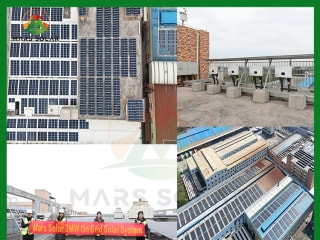 2MW Solar Panel System For Factory2MW mars solar grid-tied solar panel system for factory have designed, produced, and installed in a factory.How does Mars Solar build such a solar panel system for factory? 1. Data collection Before designing the plan, the factory owner vi
2MW Solar Panel System For Factory2MW mars solar grid-tied solar panel system for factory have designed, produced, and installed in a factory.How does Mars Solar build such a solar panel system for factory? 1. Data collection Before designing the plan, the factory owner viDo you like ?0
Read more -
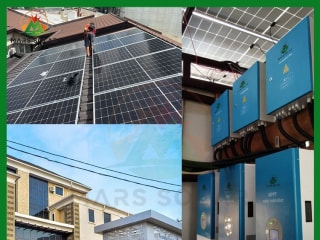 100KW Solar For Hotels And Resorts In NigeriaIn December 2024, the Mars Solar 100KW Nigeria solar for hotels and resorts project was successfully completed. In May 2024, the customer contacted Mars solar and had a series of communications on the solar for hotels and resorts project. The d
100KW Solar For Hotels And Resorts In NigeriaIn December 2024, the Mars Solar 100KW Nigeria solar for hotels and resorts project was successfully completed. In May 2024, the customer contacted Mars solar and had a series of communications on the solar for hotels and resorts project. The dDo you like ?0
Read more -
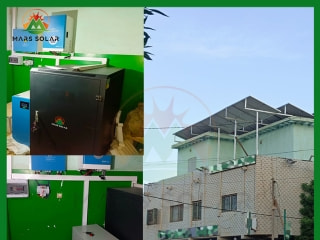 Reliable Energy Solutions for a Mali Pharmacy: 15KW Solar System Success StoryIn the heart of Mali, reliable electricity is a significant challenge, with power coming on for just 2 hours and then cutting off for 4 hours multiple times a day. This erratic power supply is particularly problematic for businesses that depend on consist
Reliable Energy Solutions for a Mali Pharmacy: 15KW Solar System Success StoryIn the heart of Mali, reliable electricity is a significant challenge, with power coming on for just 2 hours and then cutting off for 4 hours multiple times a day. This erratic power supply is particularly problematic for businesses that depend on consistDo you like ?0
Read more

